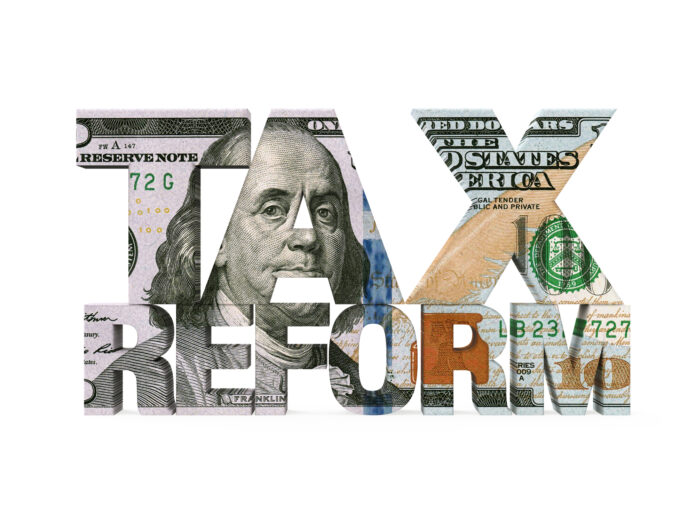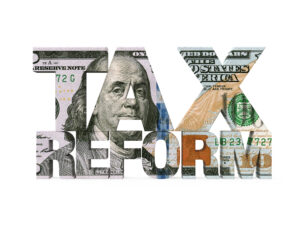New business tax deduction is more complicated than we thought
By BRITTANY SABALZA
The Tax Cuts and Jobs Act (TCJA) of 2017 will change the way businesses have previously been taxed. Most changes from the TCJA will go into effect in the 2018 tax year and will end in 2025 if the provisions are not extended by Congress.
“Small businesses finally have a tax code that is working for them, and I look forward to continuing our work to ensure our tax code helps all Americans compete and win,” says Kevin Brady (R-Texas), chairman of the House Ways and Means Committee
While businesses have always been able to deduct certain expenses, a new deduction has been created specifically for pass-through entities. The Section 199A provisions better known as the Deduction for Qualified Business Income offers many business owners a deduction from qualified business income (QBI). The Deduction offers a 20-percent deduction from QBI for a qualified domestic trade or business operated directly or through a pass-through entity such as Sole Proprietorships, Limited Liability Companies (LLC), Limited Liability Partnerships (LLP), S-Corps, Estates and Trust.
Business taxpayers will generally deduct 20 percent of Qualified Business Income plus 20 percent of the taxpayer’s qualified real estate investment trust (REIT), dividends and qualified publicly traded partnership (PTP) income, or 20 percent of the taxpayer’s taxable income minus net capital gains — the smaller of the two.
For example, Jane is a single taxpayer who uses the standard deduction (reduces taxable income) of $12,000, has $40,000 of qualified business income and $50,000 of long-term capital gains for a taxable income of $78,000. The deduction would be 20 percent of the $40,000 business income ($8,000), or 20 percent of the $28,000 taxable income minus capital gains ($5,600), whichever is less.
Qualified Business Income (QBI) is income derived from a qualifying trade or business not including any capital gains and losses, certain dividends and interest income, from rental properties and income received by a pass-through entity from interest in another pass-through entity is also QBI. Wages received as an employee are not QBI nor income earned by a C-Corp. The deduction meets limitations once a qualified business has reached threshold amounts of $315,000-$415,000 for married taxpayers and $157,000-$207,500 for all other taxpayers.
“This first-ever a 20 percent deduction for small businesses allows our local job creators to keep more of their money so they can hire invest and grow in their communities.” Brady says.
The business world is as diverse as the communities they serve, but these provisions are complicated and some businesses may get the short end of the stick. The deduction is subject to limitations based on the type of trade or business, the taxpayer’s taxable income, the amount of W-2 wages paid by the qualified trade or business and the unadjusted basis immediately after acquisition (UBIA) of qualified property held by the trade or business.
A Specified Service Trade or Business (SSTB) is not considered a Qualifying Business or trade and is subject to different limitations. The IRS SSTB list excludes those in:
Health
Law
Accounting
Actuarial science
Performing arts
Consulting
Athletics
Financial services
Brokerage services – In regards to securities.
Investing and investment management
Trading
Dealing in securities, partnership interests, or commodities
Any trade or business where the “principal asset … is the reputation or skill of one or more of its employees or owners.”
These businesses aren’t considered qualifying businesses and are subject to SSTB limitations when taxable income is between $315,000-$415,000 threshold for married taxpayers and $157,500-$207,500 for all other taxpayers. The deduction phases out completely when income exceeds these amounts.
An objective of the Tax Cuts and Jobs Act of 2017 was to simplify the tax code, but this deduction will be anything but simple for business owners. Figuring out how to use the deduction to your advantage will be a complex matter this year, so if you are considering taking advantage of the new 199A deduction you should contact your tax professional, accountant, and financial advisors to start planning now.
To find out more about the new Section 199A Deduction- Deduction for Qualified Busines Income visit the Section 199A FAQ sheet on IRS.gov/reform. Notice 2018-64 provides methods for calculating Form W-2 wages for purposes of the limitations on this deduction for taxpayers who are paid as employees of their business and as the IRS continues in the development of regulations for business taxes under the TCJA, follow updates at IRS.gov/tax-reform. I
Brittany Sabalza, enrolled agent, is director of Tax Education at Pro Tax Solutions, Indianapolis and a tax columnist.












